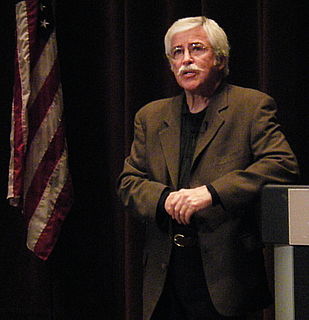A Quote by Franklin D. Roosevelt
That is the spiral galaxy in Andromeda. It is as large as our Milky Way. It is one of a hundred million galaxies. It consists of one hundred billion suns. Now I think we are small enough.
Related Quotes
The universe has really never made things in ones. The Earth is special and everything else is different? No, we’ve got seven other planets. The sun? No, the sun is one of those dots in the night sky. The Milky Way? No, it’s one of a hundred billion galaxies. And the universe - maybe it’s countless other universes.
We live on a hunk of rock and metal that circles a humdrum star that is one of 400 billion other stars that make up the Milky Way Galaxy which is one of billions of other galaxies which make up a universe which may be one of a very large number, perhaps an infinite number, of other universes. That is a perspective on human life and our culture that is well worth pondering.
Philosophically, the universe has really never made things in ones. The Earth is special and everything else is different? No, we've got seven other planets. The sun? No, the sun is one of those dots in the night sky. The Milky Way? No, it's one of a hundred billion galaxies. And the universe - maybe it's countless other universes.
Now, almost one hundred years later, it is difficult to fully appreciate how much our picture of the universe has changed in the span of a single human lifetime. As far as the scientific community in 1917 was concerned, the universe was static and eternal, and consisted of a one single galaxy, our Milky Way, surrounded by vast, infinite, dark, and empty space. This is, after all, what you would guess by looking up at the night sky with your eyes, or with a small telescope, and at the time there was little reason to suspect otherwise.






























